Menu
Edit
ADDRESS
Pidilite Industries Ltd,
Ramkrishna Mandir Road,
P.O. Box No. 17411,
Andheri (East) Mumbai – 400059
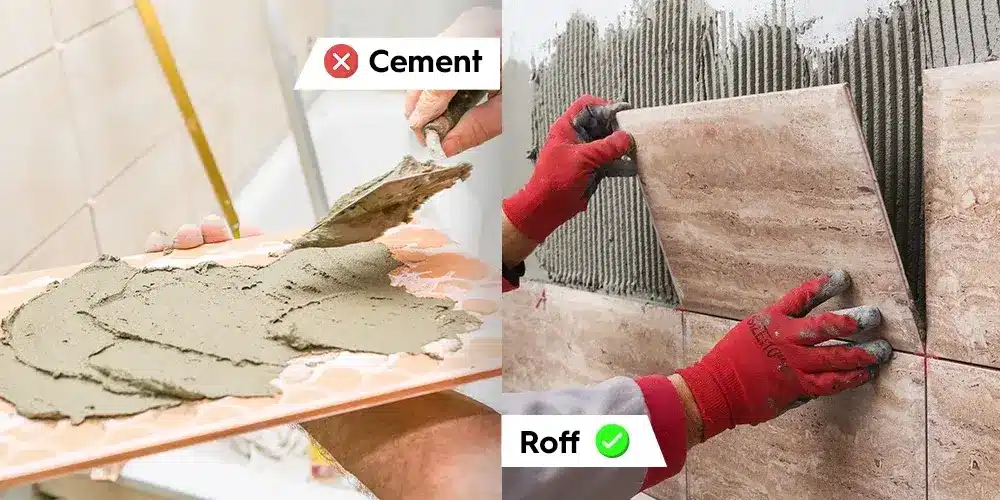
For a long time, cement has been most commonly used while installing tiles. But did you know you have a superior option? Roff tile adhesives have been designed to reduce and eliminate the common problems you face while installing tiles with cement.
Here are some challenges that you may face with cement which Roff tile adhesives have been designed to overcome:
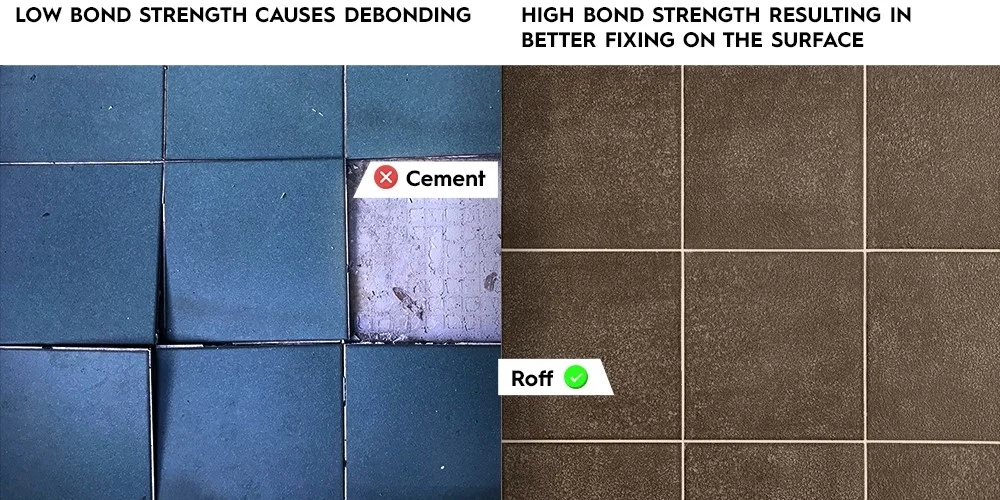
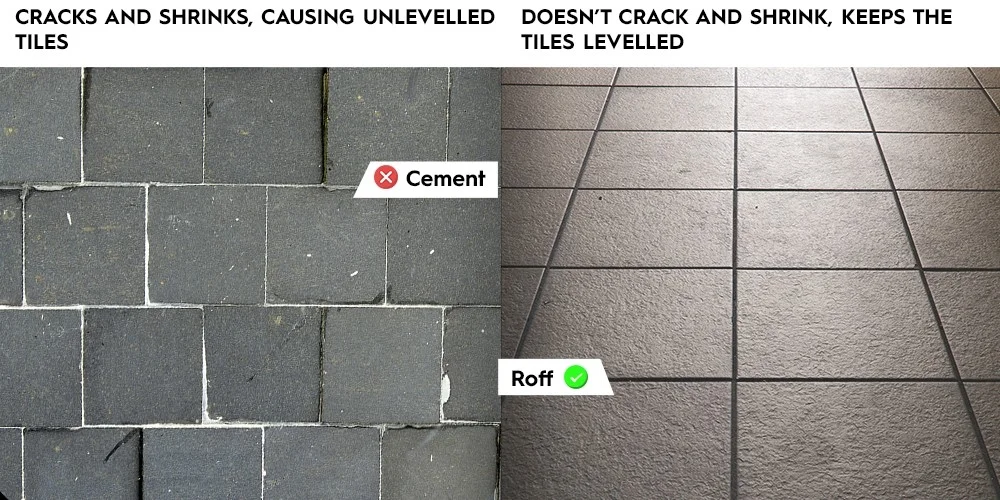
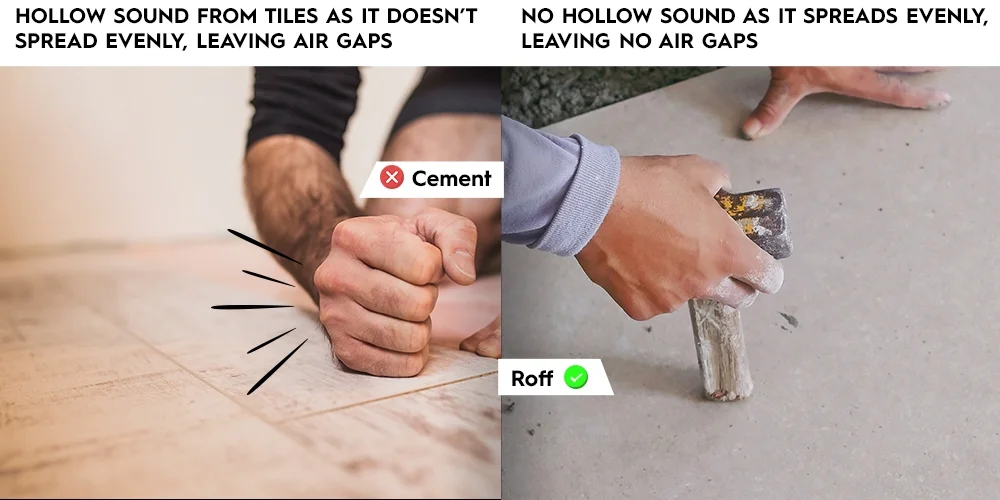
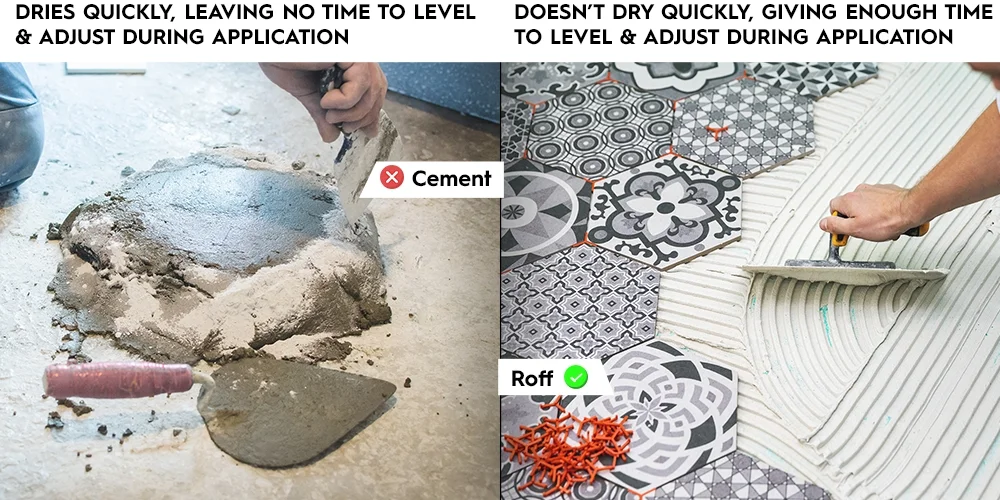
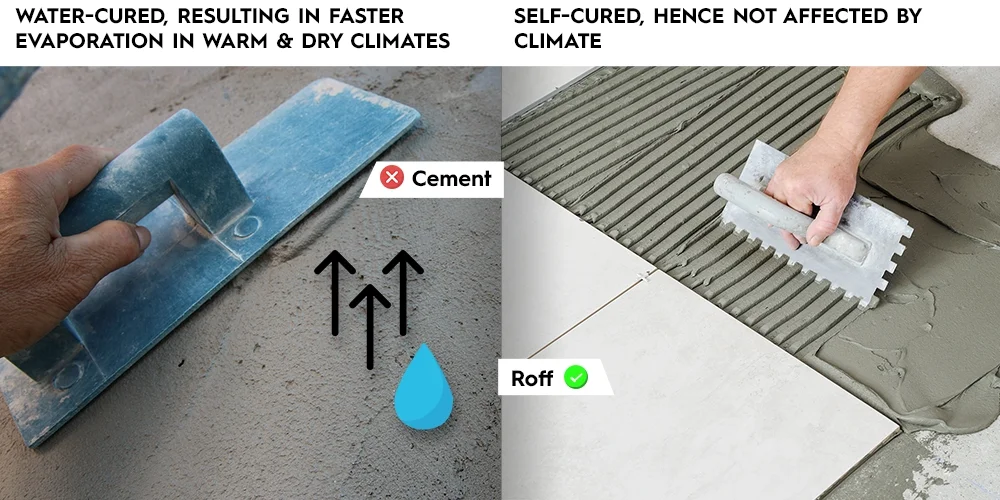
Cement also hasn’t evolved to meet the modern challenges of tile fixing. The usage of tiles has changed considerably over the past few decades and cement isn’t up to meeting these needs.
Here are some ways Tile & Stone Trends have changed:
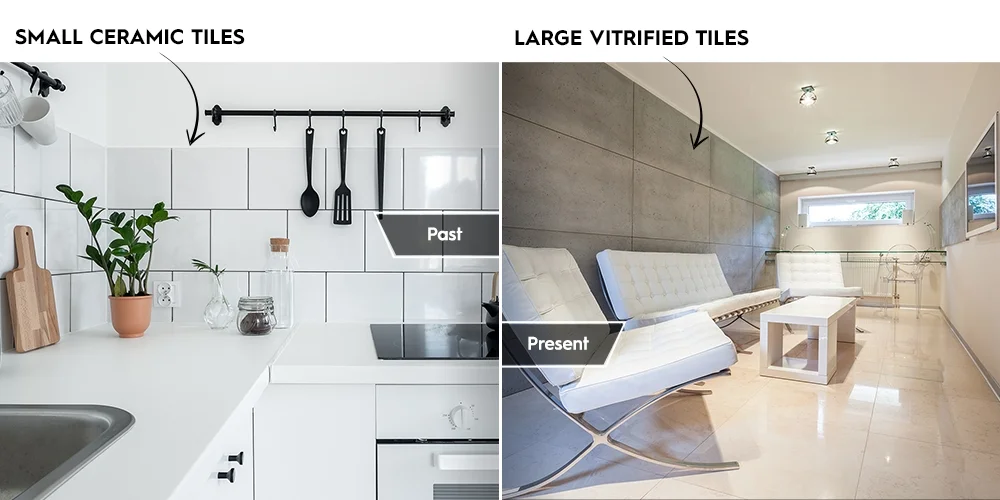
Ceramic tiles have clay surface at the back which bonds well with cement whereas vitrified tiles have a smooth non-porous surface at the back which is difficult to bond only with cement. Cement has low bond strength and also doesn’t spread evenly which is not enough for large and heavy tiles and stones. Such tiles and stones need adhesives with a higher bond strength that spreads evenly for fixing.
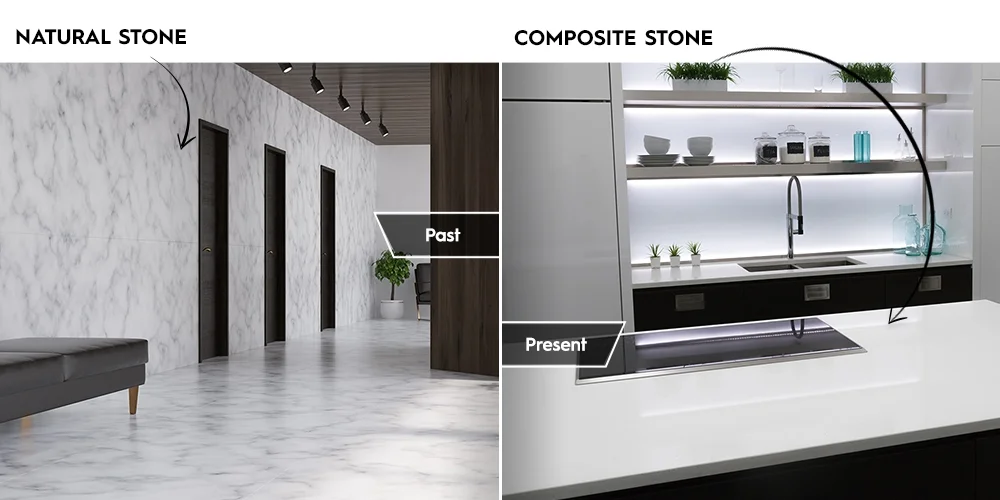
Natural stones are porous and hence cement bonds easily for fixing whereas composite stones are adsorbent and therefore don’t bond with cement.
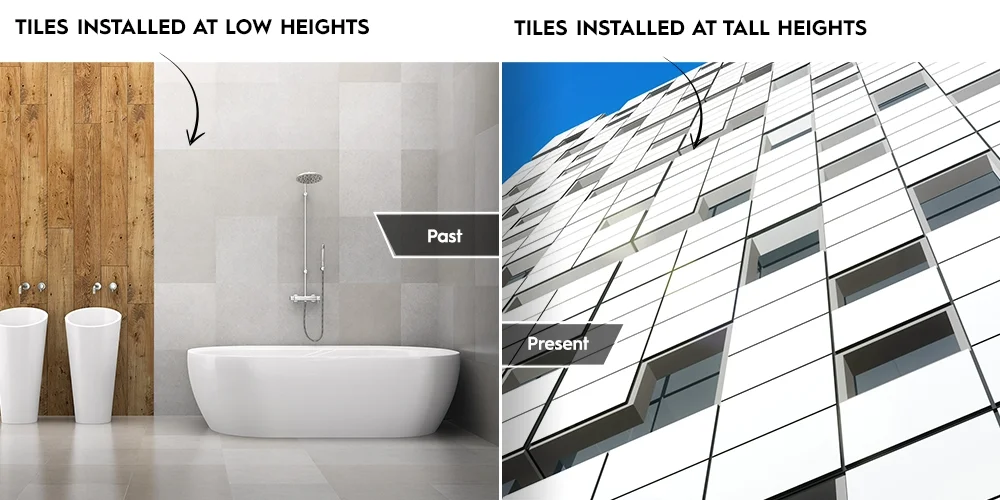
At higher heights, bond strength and flexibility are very critical to ensure durable tile fixing which cement doesn’t provide.
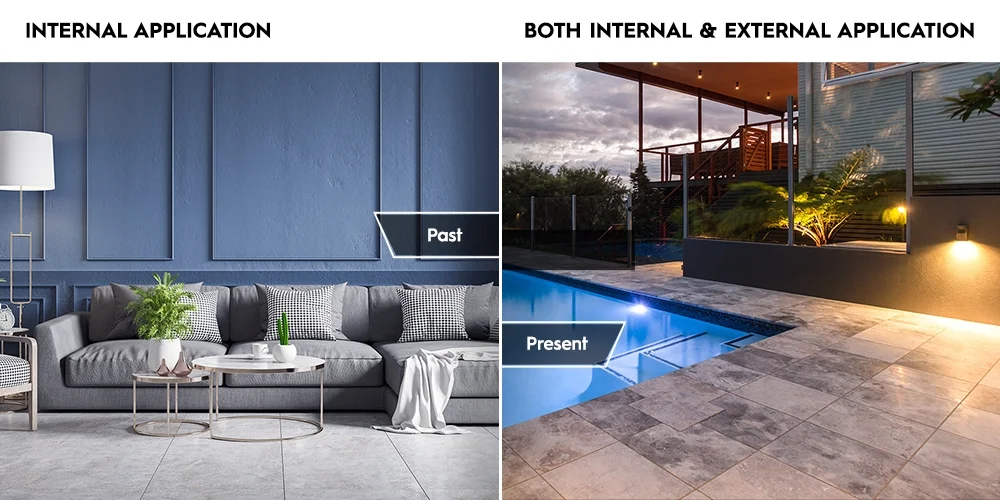
In external applications, there are even more factors to consider. Tiles and stones are exposed to different weather conditions like heat and rain causing expansion and contraction affecting the bond strength.
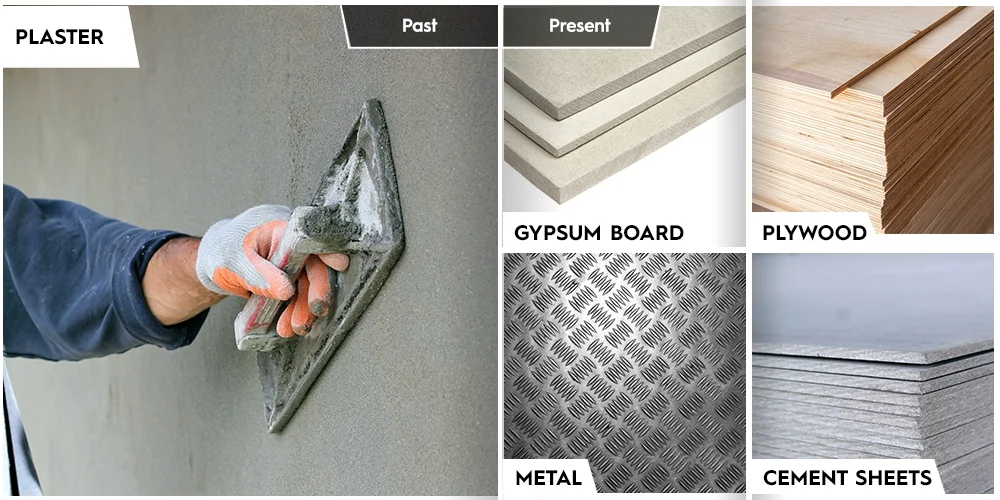
Tiles are also now attached to a variety of surfaces beyond just plaster. Metal is difficult to bond as its non-absorbent. Other drywall surfaces like plywood, cement board, and gypsum board absorb water causing cement to dry out. These surfaces also swell up absorbing water from cement and bend or break.
This is why Roff tile adhesives have been designed keeping these trends in mind and become a popular choice for tile fixing professionals.
Ready to try Roff?